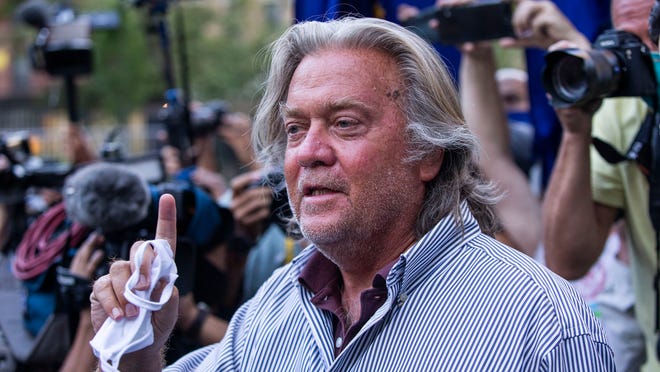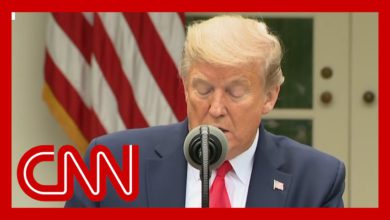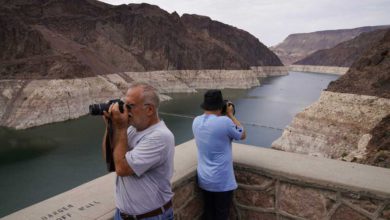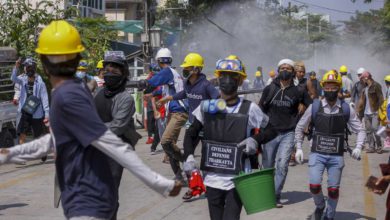
Former White House strategist Steve Bannon has told the committee investigating the attack on the U.S. Capitol that he may be willing to testify, after all.
Bannon, who was in contact with former President Donald Trump in the days leading up to the riot on Jan. 6, 2021, refused to comply with a subpoena issued last fall, claiming executive privilege from Trump. Both the committee and full House voted to hold him in contempt of Congress.
Overnight Sunday, the committee received a letter from Bannon's lawyer stating the former adviser would testify.
"Mr. Bannon was obligated to honor the President’s invocation (of executive privilege), unless and until, either your Committee reached a constitutionally required accommodation with President Trump as to the invocation of executive privilege or your Committee obtained a ruling from the Federal District Court that the invocation of executive privilege was improper or did not apply to the particular question or document sought," attorney Robert Costello wrote. "While Mr. Bannon has been steadfast in his convictions, circumstances have now changed."
Trump released Bannon from the privilege in a Saturday letter to Costello, saying: "If you reach an agreement on a time and place for your testimony, I will waive executive privilege for you, which will allow for you to in and testify truthfully and fairly as per the request of the Unselect Committee of political Thugs and Hacks."
Rep. Zoe Lofgren, D-Calif. and a committee member, said Sunday on CNN's "State of the Union that the committee expects to hear from Bannon soon.
"And there are many questions that we have for him," she said.
In recent days, as the former president grew frustrated with what he decried as a one-sided presentation by the committee of seven Democrats and two Republicans, Trump said he would waive that privilege claim, according to a letter Saturday to Bannon's lawyer.
"President Trump has decided that it would be in the best interests of the American people to waive executive privilege for Stephen K. Bannon, to allow Mr. Bannon to comply with the subpoena issued by your Committee. Mr. Bannon is willing to, and indeed prefers, to testify at your public hearing," Costello wrote to the committee.
Catch up on Jan. 6 hearings:Missed the Jan. 6 hearings? What you need to know before they resume this week
Trump on Jan. 6:Trump documentary 'Unprecedented': Footage shows president on Jan. 6 but lacks big reveal
Bannon faces trial on contempt charge
Bannon, who was White House chief strategist for the first few months of Donald Trump's presidency, refused to comply with subpoenas from the House Select Committee investigating the Jan. 6 insurrection at the U.S. Capitol by a pro-Trump mob. The Select Committee voted unanimously Oct. 19 to hold Bannon in congressional contempt.
"Mr. Bannon stands alone in his complete defiance of our subpoena," Thompson said at the time. "That’s not acceptable. No one in this country, no matter how wealthy or how powerful, is above the law."
The full House voted two days later, 229-202. All Democrats voted in favor; most Republicans voted against.
Bannon was then indicted by the Justice Department on a contempt charge and is facing a trial start date of July 18 on that charge.
Committee member Rep. Jaime Raskin suggested Bannon, "after watching, presumably, all of these people come forward, you know, including Cassidy, Hutchinson, you know, he's decided that he wants to come in and if he wants to come in, I'm certain that the committee would be very interested in hearing from him."
Contempt charge history:Steve Bannon held in contempt of Congress. The last time such charges were successfully prosecuted? Watergate
Both Raskin, who spoke to CBS News, and Lofgren indicated Bannon would first be deposed under oath, in private, by the committee, just as other witnesses have been.
The committee's next hearing is at 1 p.m. Tuesday, with another following in prime-time on Thursday.
Contributing: Kevin Johnson
Source link









